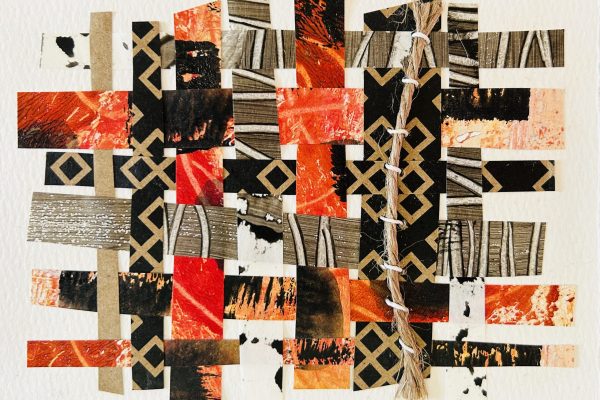I have spent the majority of my life feeling bad
About something,
Taking the blame when it’s up for grabs
Like the last cookie on a platter.
It’s all my fault.
It must be
If only I had…
If only I could…
I should have…
Why didn’t I…
Always an undercurrent of
“You are not good enough.”
As a teenager, to punish myself
I stopped eating for a while.
As an adult, to feel worthy of love,
I’ve tried apologizing until I am
Apologizing for apologizing.
I’ve tried being nice, doing mitzvos
I’ve tried therapy and mindfulness,
I’ve tried sex and booze,
I’ve tried social justice and the rabbinate…
But no matter what I do
To fix myself or the world
That guilt lingers on
Like an unwanted yet beloved
House guest.
Once, I saw it in a dream.
It was a mass of green slime.
And yes, I am of the Ghostbusters generation.
And yes, it has something to do with ghosts.
In the dream, it lived in my belly,
This radioactive lake of slime,
Guilt putrefied into shame.
And I know I’m not alone in these feelings,
Though if they had their way
They would have me
In hiding,
Cut off from life.
When I was twenty-two,
Living in Jerusalem,
I heard about the ritual of kapparot.
Leading up to Yom Kippur,
A live ritual of atonement.
You could go to a tent at the central market,
Full of squawking chickens and bearded men,
Buy a live rooster or hen,
Swing it around your head
And transfer all of your sins onto the bird.
The shokhet would slaughter it,
Right then and there.
The chicken—now dealt death in your place—
Its kosher meat would be given away
To a hungry family,
And you would be forgiven.
I went to this tent full of feathers and beards
And plastic trash bins of chicken blood,
Of men sweating beneath aprons and coats,
Of incantations and terminations.
I went to finally be forgiven.
And, also, after a decade as a vegetarian,
I had decided to eat meat again.
Before I chowed down on shnitzel,
I wanted to see up close what that meant for the chicken.
I went to the tent
And I cried as the chicken
Struggled, her leathery ankles shaking in my grip.
“Take this chicken instead of me God
Cause I feel so bad sometimes I want to die.
Take this chicken and forgive me
Let me know that I’ll always be yours.”
It was over chik-chak,
Just like that, for the chicken,
I felt even worse than before.
Before there were chickens
There were goats.
The Torah tells us how Aaron,
The High Priest,
Would seek forgiveness
For himself, for his family,
For his people, for the altar and for the sacred space itself.
Once a year, on the Day of Atonement,
he would slaughter a bull and a goat,
Send them up to God in smoke.
Once a year, Aaron, a slave turned High Priest,
Would fall flat on his face,
Bowled over by his own powerlessness,
By the force and the fury and the mercy of God.
Once a year, Aaron would take a second goat,
Lay his hands on it
And confess all the sins of the people onto it.
The goat, carrying all the guilt,
Would be led out of the camp,
Into no-man’s-land.
Doomed to die on jagged cliffs,
Doomed to be dinner for a demon,
Or else doomed to wander forever in the wilderness.
And the people—we would be forgiven.
Today we have no more High Priest,
No more Holy Temple,
No more live goat to be sent into exile,
Holding the weight of our failures.
But we still have this guilt
That lives in our psyches and our bodies,
Some of it earned
In our real and messy human-ness,
Some of it lobbed on us by others.
Some of it multiplying like malignant cells.
Like our ancient ancestors
We need a way to transform our guilt
So we can go on living.
We turn to birds,
We turn to words,
We turn to water,
We turn to justice,
We turn to fasting,
We pound on our hearts,
Hoping they might break open
Enough to let go of all that keeps us stuck.
GPO photo by Ohayon Avi via Wikipedia.










